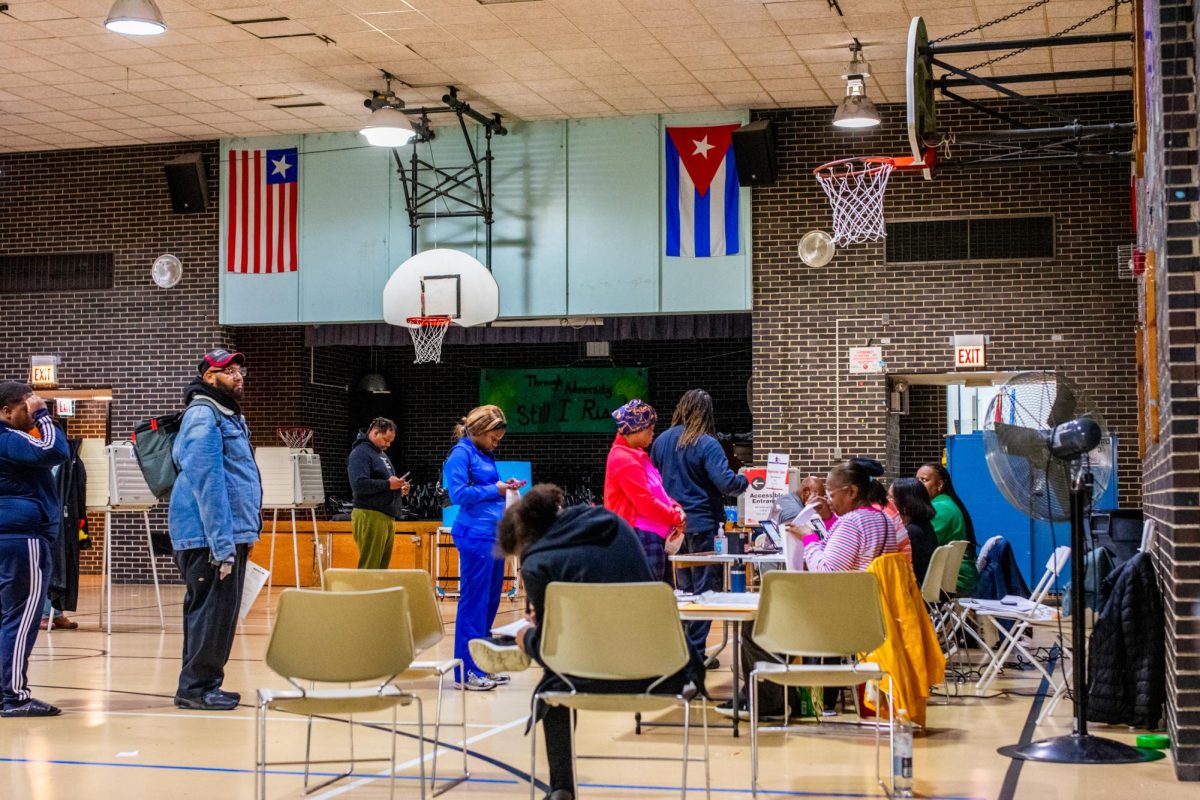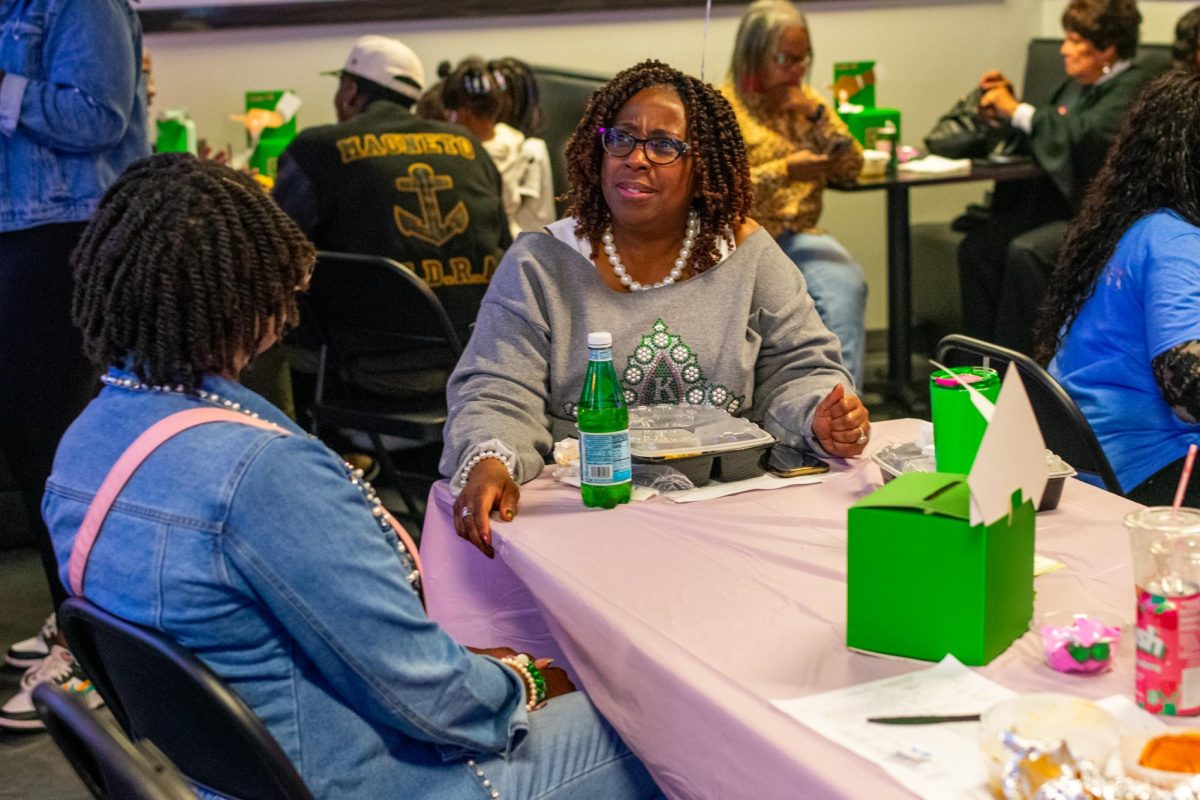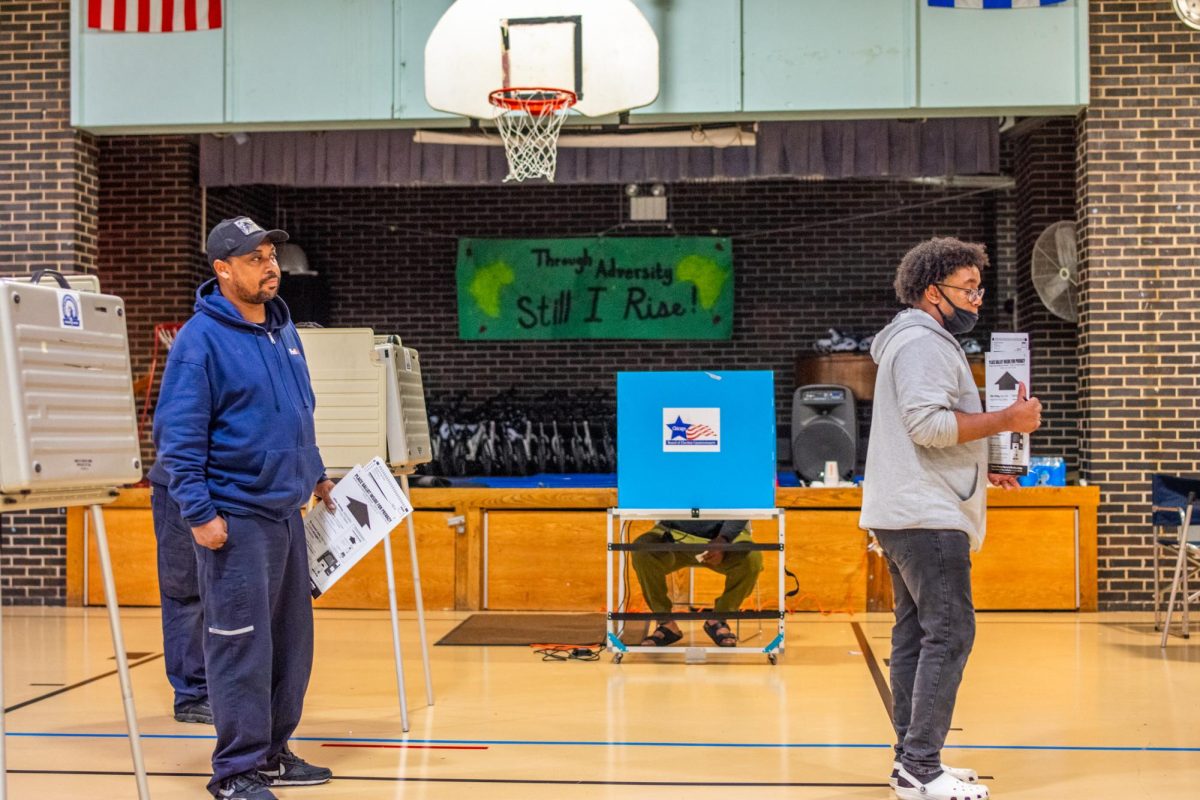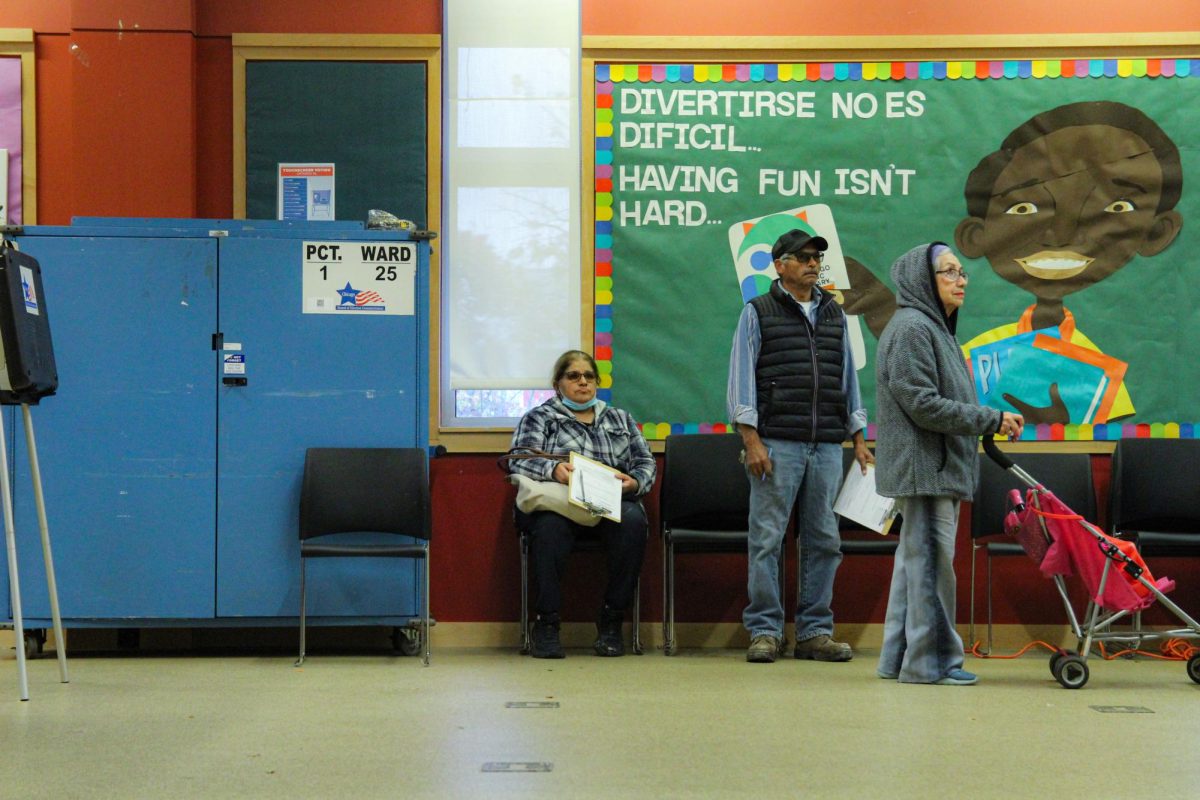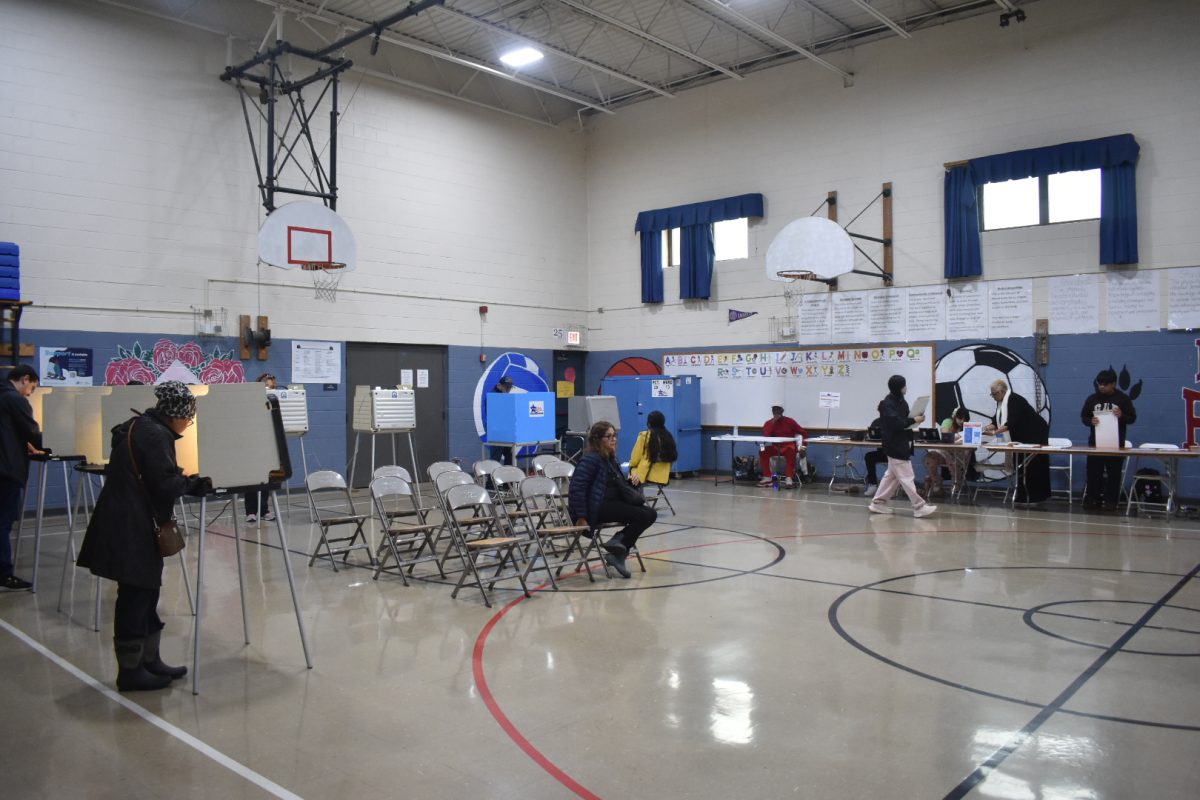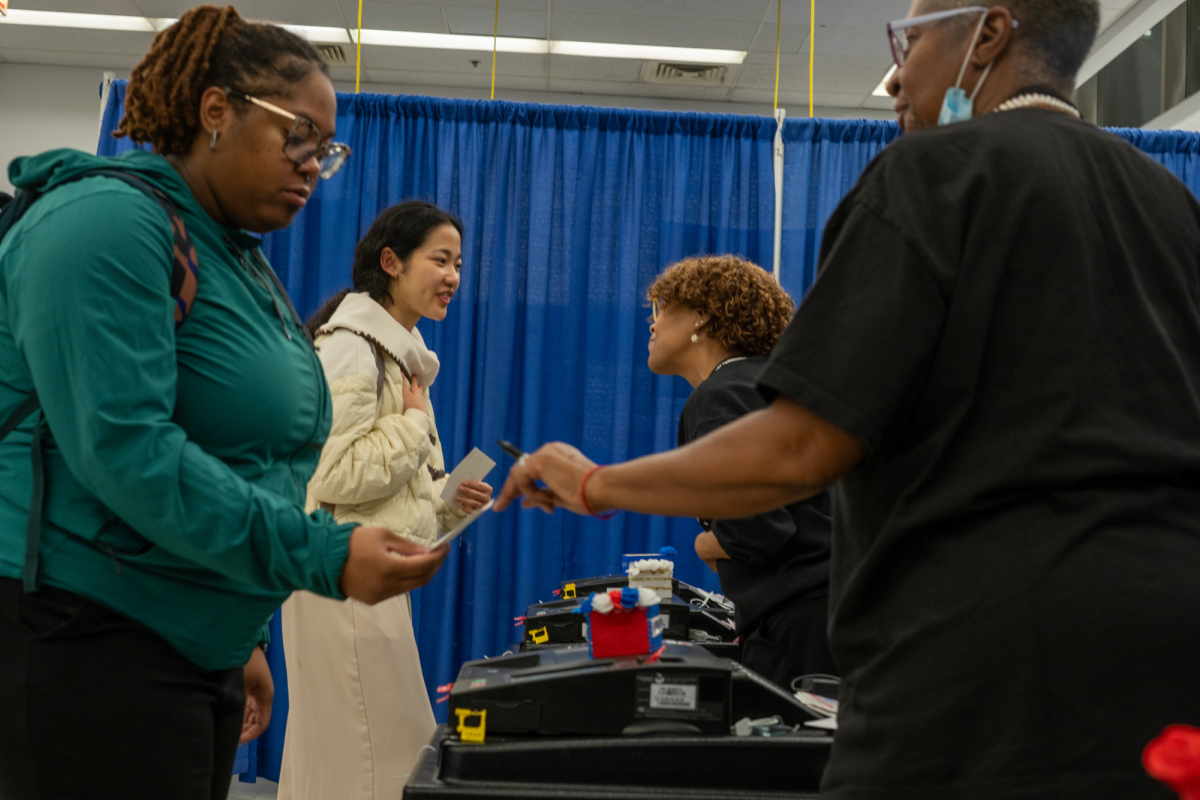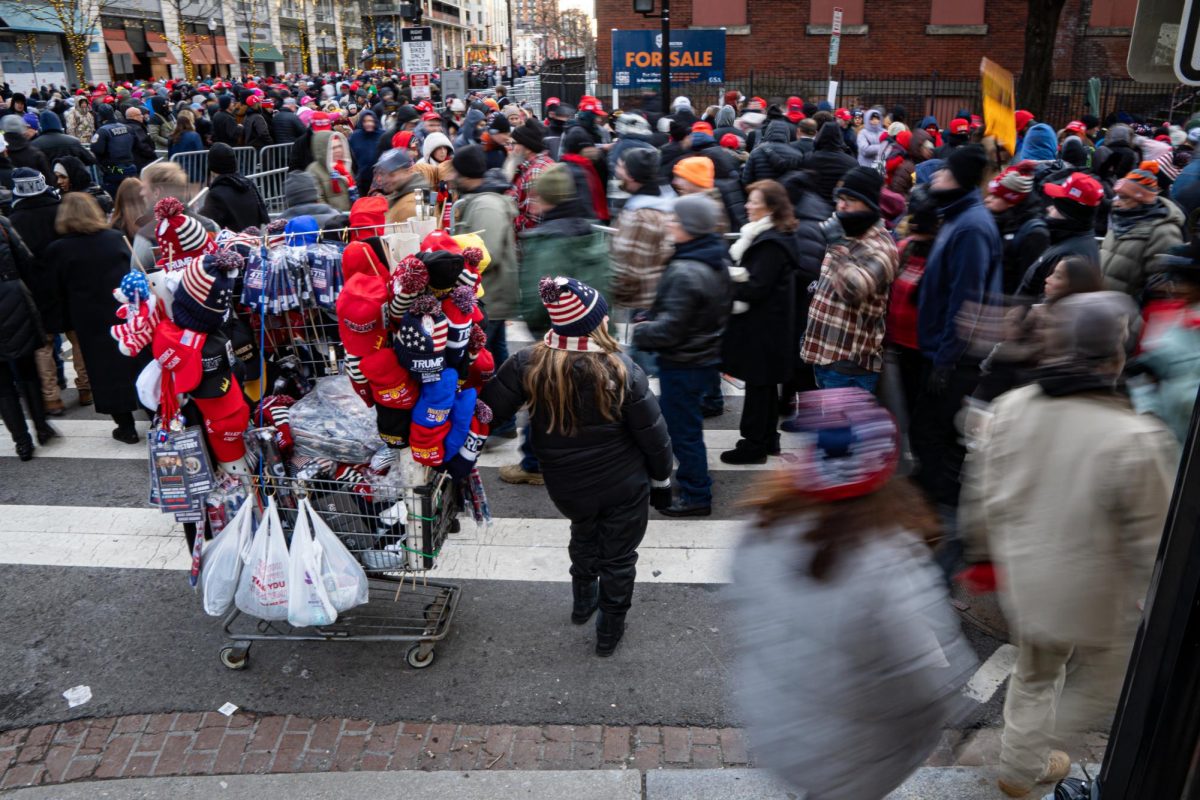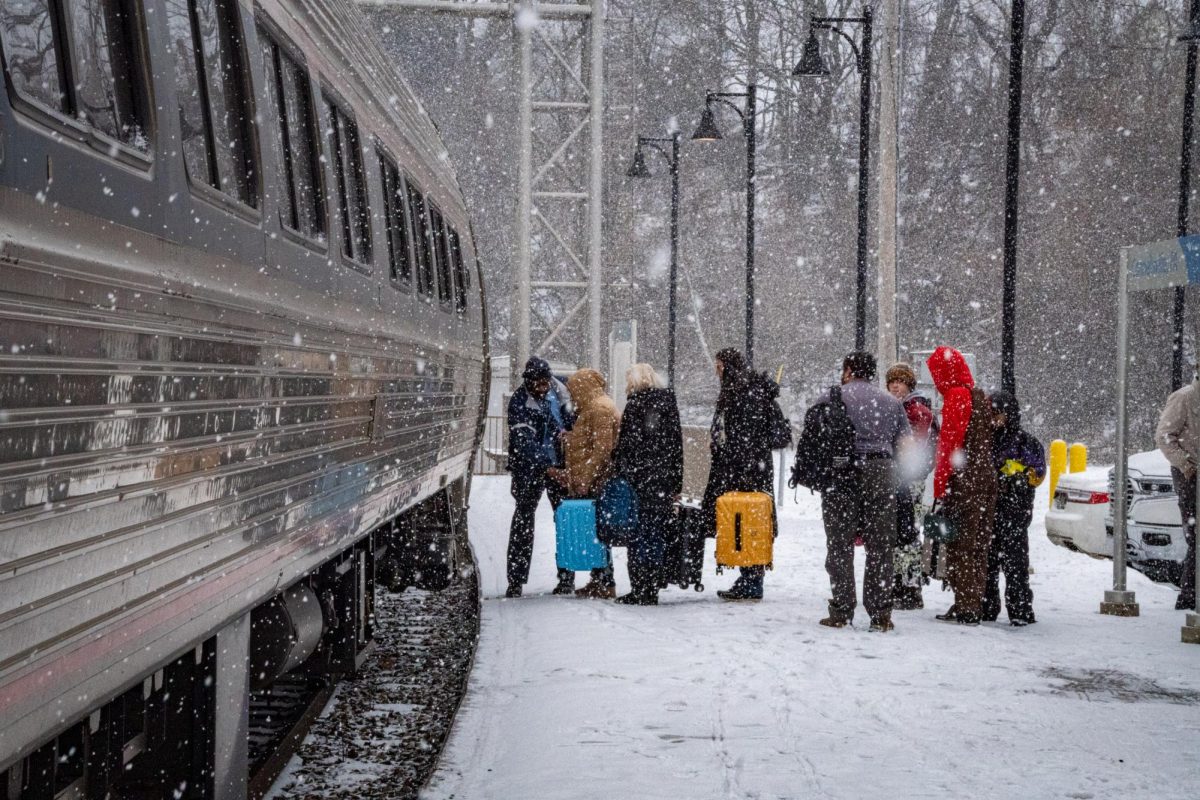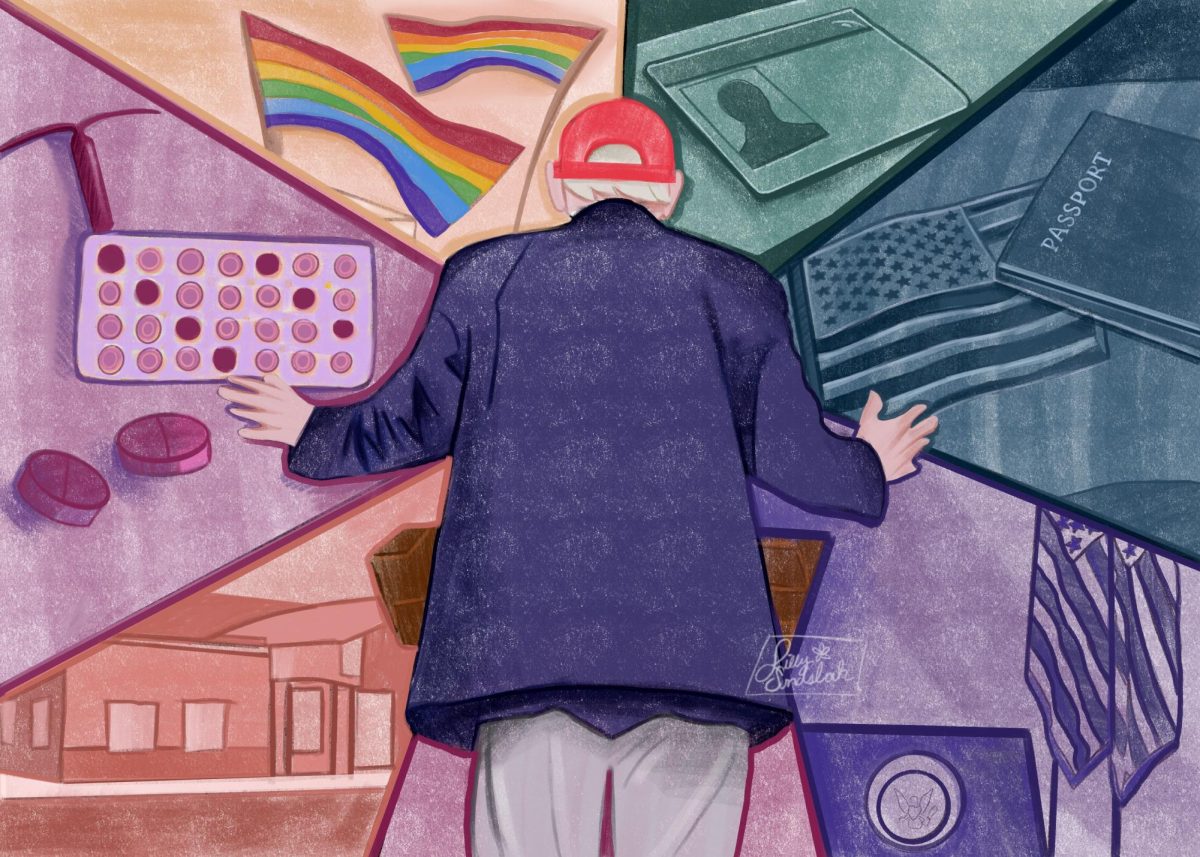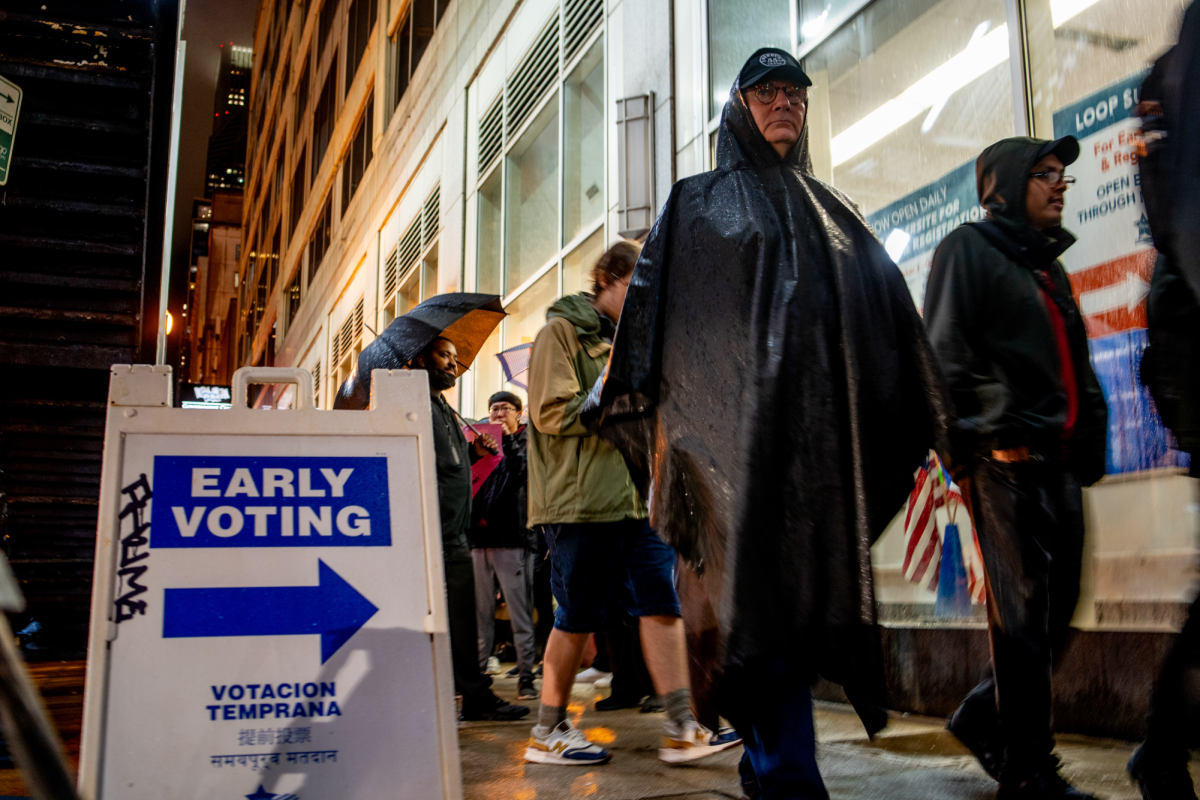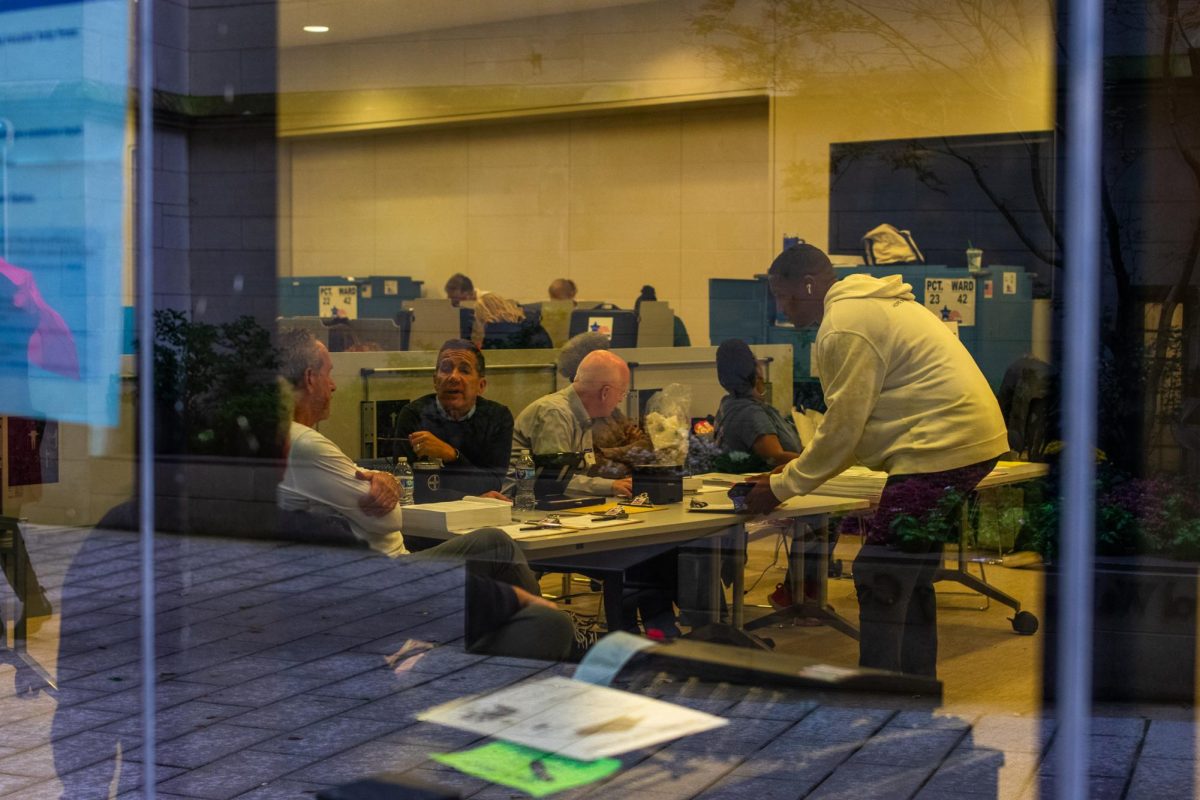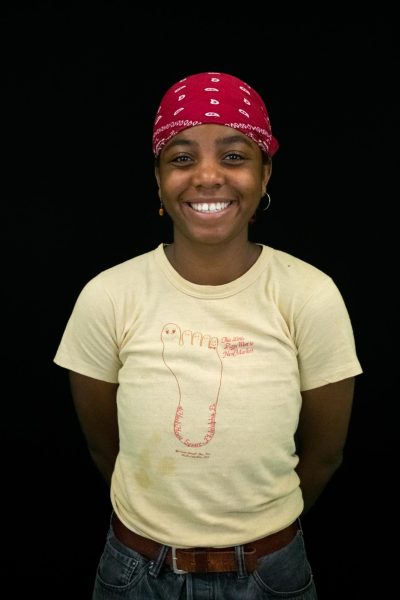The election night watch party at Bronzeville Soul, 4655 S. Dr. Martin Luther King Jr. Drive, drew a full crowd. The event was organized by the Phi Kappa Omega chapter of Alpha Kappa Alpha Sorority, Incorporated, of which Harris is a member.
Tiffany D. West, president of Alpha Kappa Alpha Sorority Incorporated Phi Kappa Omega chapter, shared that despite feeling nervous, she was optimistic about the election.
“I feel like there was a lot more on the line,” she said. “I felt like a lot of things that we maybe take for granted, like health, women’s health and voters’ rights, have been challenged this year. So because of that, it feels very different.”
West emphasized that AKA Sorority Incorporated is built on social justice and that is why they wanted to provide a space to “come together, create opportunities for voter mobilization and education, and support our current programs, which is building our economic wealth and supporting a black business.”
“I am hoping that we have our first female president, I am hoping that democracy is restored, and I am hoping that America can come together despite parties, despite differences and continue to build something great,” West said.
Tiffany Johnson, another member of the AKA sorority, also said that she voted in this election to support democracy. She explained that she was nervous while viewing the updates and “can’t believe that we’re voting for a convicted felon.”
“I don’t understand it,” she said. “That’s why this vote is important.”
Watch party attendee Cynthia Anderson took advantage of early voting this year and despite feelings of anxiety towards the election results, she felt like the race is one of the most historic, she said.
“This presidential race is a little bit more historic, we have a Black woman running for president for the first time,” Anderson said.
All attendees did not feel positive about the early election results.
Landre Davidson, a voter from Texas, expressed disappointment with how close the polls were because “it’s a convicted felon against a prosecutor,” he said.
Despite mixed reactions, feelings of anxiety loomed over the event.
“I am seated on pins and needles trying to figure out why the high-end states are not reporting more accurately and sooner than later,” Marianne Stallworth, from Country Club Hills, Illinois, said.
Additional reporting by Emma Jolly and Kate Larroder
Copy edited by Manuel Nocera


